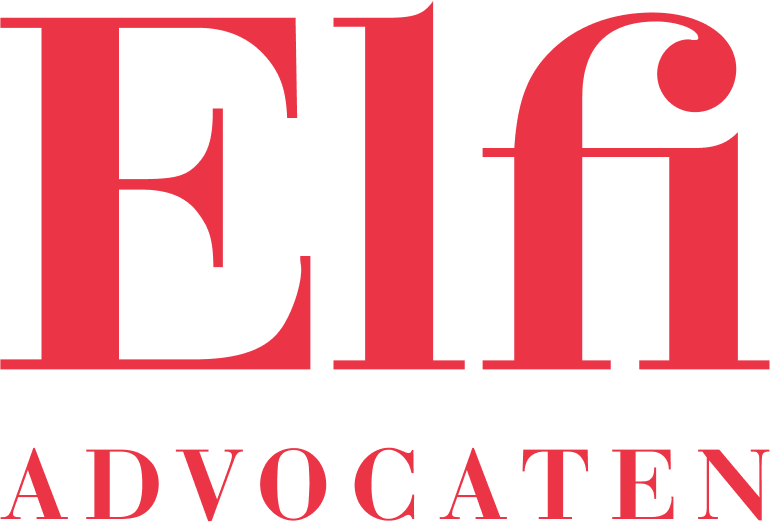Work accident: No liability recognised? BGK still to be borne by employer.
Introduction
When someone suffers an accident in the performance of his work, his employer is in principle liable, unless the employer can prove that he has fulfilled his duty of care under Section 7:658 of the Dutch Civil Code. This article implies a broad duty of care. It cannot easily be assumed that the employer has fulfilled it and is therefore not liable for the damage suffered by the employee in the performance of his duties.
This means that, in most cases, the employer has to compensate the sustained damages, including reasonable lawyer’s fees. On 7 September 2021, the Arnhem-Leeuwarden Court of Appeal ruled[1] on lawyer’s fees incurred concerning an accident at work for which the employer did not admit liability.
What was this case about?
The victim had been involved in a workplace accident on 18 September 2014, as an employee. While performing his duties, the victim suddenly felt severe pain in his back. He turned around and saw that a heavily loaded forklift truck had collided with his back. The Ministry of Social Affairs and Employment (Inspectorate SZW) conducted an investigation into the facts of the accident. On 10 November 2015, the Inspectorate SZW concluded that the employer had violated the Working Conditions Act and imposed a fine.
The victim had several advocates assist him in claiming his damages. The employer had never explicitly acknowledged liability, but took up the personal injury case and made advance payments. The victim started a petition for provisional expert opinion. The court appointed an expert to investigate the causal link between the victim’s alleged complaints and the accident. The expert opinion concluded that the causal link could not be objectively established. The advocate claimed an amount of €4,198.65 for his work. The employer refused to reimburse this amount to the victim, arguing that liability had never been acknowledged and that the causal link had not been established.
The subdistrict court
As the employer refused to reimburse the lawyer’s fees, the victim brought proceedings before the subdistrict court of the Gelderland District Court to claim the lawyer’s fees. By way of counterclaim, the employer claimed the costs of the expert examination.
In brief, the subdistrict court ruled that as liability had never been acknowledged, had not been established in court and no proceedings on the merits had been instituted to establish liability, there was no basis for the claims. For Section 6:96 of the Dutch Civil Code to apply, there must first be a liability-creating event. Since, according to the subdistrict court, there was no case of a liability-creating event (because it had not been acknowledged or established), the claimed extrajudicial costs could not be awarded. The counterclaim regarding the costs of the expert examination met the same fate. The subdistrict court considered as follows: “However, as already considered in the Convention, proceedings on the merits have still not been conducted between the parties with regard to the determination of liability and compensation for any damage suffered as a result of the accident. There is therefore now no basis on which [defendant in counterclaim] can be obliged to pay the costs of the expert opinion to [plaintiff in the counterclaim]. The claim in this regard should therefore be dismissed.”
The court
The victim and the employer brought appeals and cross-appeals, respectively, against the judgment of the subdistrict court. The court of appeal considered that the issue in this case revolved around the question whether, in order for extrajudicial costs of legal assistance (Section 6:96(2) opening words and under (b) in conjunction with Section 6:96(3) of the Dutch Civil Code) to be awarded, liability must have been or will be established. In addition, the question was whether the victim had to bear the costs of the preliminary expert opinion advanced by the employer.
Referring to established case law of the Supreme Court, the court of appeal elaborated on when there is an obligation to compensate for costs incurred to establish damage and liability. Based on this, the court of appeal concluded that liability in law for the consequences of the accident need not be established in order for extrajudicial costs of legal assistance to be awarded. The court of appeal considered that it follows from the fact that a fine was imposed by the SWZ Inspectorate that the industrial accident could be considered a liability-creating event. The employer’s persistence in contesting its liability for the consequences of the accident alleged by the victim does not alter this.
The extrajudicial costs claimed
The court then proceeded to assess the extrajudicial costs claimed and claimed.
The extrajudicial costs claimed covered the period from mid-September 2016 to mid-May 2017. During that period, from 23 January 2017, the advocate declared work in connection with the application procedure for the preliminary expert opinion. In total, the advocate declared 25.44 hours of work, at an hourly rate of €235.00 excluding 6% office expenses and 21% VAT.
The court deducted travel time (110 minutes) from the hourly total. For it had not been made plausible that the victim could not travel to the advocate’s office to discuss the case. The hours spent by the advocate as part of the petition process were also deducted from the hourly total. This is because this work was not performed “out of court”.
After deducting travel time and hours spent on the petition proceedings, about 7.5 hours of declared out-of-court work remained. This time had been charged between mid-September 2016 and 23 January 2017 for: discussion, correspondence, telephone calls to the victim and preparation of documents. Taking into account a reasonable allocation of time – given the minor complexity of the case and the fact that the advocate was a specialised personal injury lawyer – the court considered five hours of legal assistance reasonable.
Of 7.5 hours of out-of-court work, the court awarded five hours. The rate of € 235.00 per hour (excluding VAT) charged by the advocate was deemed reasonable by the court of appeal insofar as it included office costs of 6%.
The claimed costs of the expert opinion
The court of appeal put first and foremost that in the event that a preliminary expert opinion is submitted in proceedings on the merits, the party that paid the costs thereof and is found to be in the right, can recover the costs by means of a costs order. The court considered that the pending appeal proceedings could be regarded as proceedings on the merits. However, as the party debate on the determination or admission of liability was unfinished and the court of appeal had previously considered that, in view of the fine report, the industrial accident could be regarded as a liability-creating event, the court of appeal saw no reason to order the victim in these proceedings to pay the costs of the preliminary expert opinion.
Conclusion
In this matter, the court of appeal gave heavy weight to the fact that there was a fine report from the SWZ Inspectorate, which imposed an (administrative) fine on the employer for violating the Working Conditions Act. The accident fine report from the SWZ Inspectorate, as well as the fact that it is undisputed that the victim hurt his back while working and was therefore unfit for work, mean that there is a legal obligation to pay compensation. This means that the reasonable costs of establishing damage and liability should also be compensated.
With regard to the claimed extrajudicial costs, the court of appeal correctly held that the costs related to the procedure for appointing an expert could not be awarded. Of the extrajudicial work claimed, the vast majority was awarded.
It follows from this ruling that an employer’s liability for damages is actually already given with an irrevocable decision by the SWZ Inspectorate. This is noteworthy, as another court (‘s-Hertogenbosch Court of Appeal) ruled by decision[2] dated 15 October 2019 that there was a breach of the duty of care (and thus a liability-creating event), despite the Inspectorate SWZ ruling that there was an unfortunate confluence of circumstances. The status of an Inspectorate SWZ report does not yet seem to have been fully crystallised in case law.
The ruling is at least pleasing for victims of workplace accidents, as it follows from the ruling that an employer’s liability for damages is quite far-reaching.
1] ECLI:NL:GHARL:2021:8510
[2] ECLI:NL:GHSHE:2019:3784
By mr. drs. Lilian Madu
About the author: Lilian Madu works as a personal injury lawyer at Elfi Letselschade Advocaat in Rotterdam. In the field of personal injury, this law firm only assists victims. Would you like to learn more about Elfi Letselschade Advocaat? Then take a look at its website and social media pages:
Website: www.elfi.nu
LinkedIn: https://www.linkedin.com/company/10652908/admin/
Instagram: https://www.instagram.com/challenge/?next=/elfiadvocaten/
Facebook: https://nl-nl.facebook.com/elfiletselschadeadvocaat/



